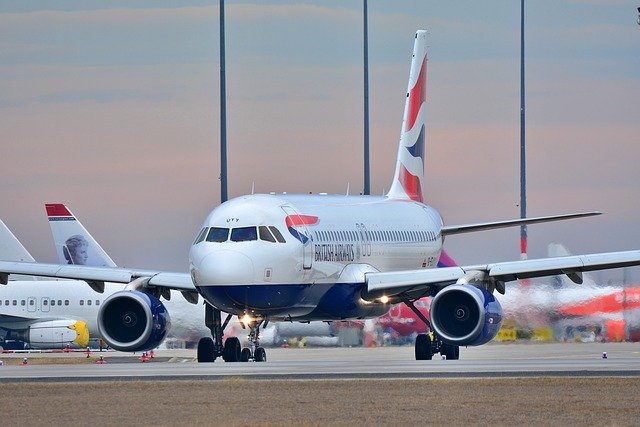Uncover Pathways to Success in Aviation and Airport Roles
The aviation industry offers diverse career opportunities beyond the cockpit, encompassing roles in airport operations, air traffic control, aircraft maintenance, and aviation management. Understanding the various pathways to enter this dynamic field is essential for those aspiring to build a career in aviation. This article explores the educational requirements, training programs, and career progression opportunities available to individuals interested in pursuing aviation and airport roles.

Understand the Journey from Aviation Training to Airport Careers
Aviation careers typically begin with specialized education and training tailored to specific roles. For pilots, the journey starts with flight training at certified flight schools, where students progress through private, instrument, commercial, and airline transport pilot licenses. This process usually takes 2-3 years and requires accumulating flight hours. Meanwhile, air traffic controllers often enter the field through FAA-approved college training programs or military experience, followed by training at the FAA Academy.
For maintenance technicians, FAA-certified Aviation Maintenance Technician Schools (AMTS) provide the necessary education to earn Airframe and Powerplant (A&P) certification. These programs typically last 18-24 months and combine classroom instruction with hands-on practice. Airport operations specialists may pursue degrees in aviation management, transportation, or business administration, with programs ranging from associate to master’s levels focusing on subjects like airport planning, safety regulations, and operational procedures.
The transition from training to employment often involves internships, entry-level positions, and continuous professional development. Many aviation professionals start in smaller regional operations before advancing to larger airports or airlines, building essential experience along the way.
Get Insights on Building a Future in Aviation and Airports
Successful aviation careers are built on a foundation of technical knowledge, regulatory understanding, and industry-specific skills. Aviation safety and security knowledge is paramount across all roles, with professionals needing to understand and implement complex protocols and regulations. Communication skills are equally critical, particularly in high-pressure environments where clear, concise information exchange can be safety-critical.
Industry certification plays a significant role in career advancement. Beyond initial qualifications, professionals can pursue specialized certifications such as the Certified Member (CM) or Accredited Airport Executive (AAE) from the American Association of Airport Executives (AAAE). These credentials validate expertise and often lead to career advancement opportunities.
Networking within the aviation community through professional organizations like the International Air Transport Association (IATA), Airports Council International (ACI), or Women in Aviation International (WAI) provides valuable connections and mentorship. These organizations offer conferences, workshops, and online resources that help professionals stay current with industry trends and technologies.
Technology adaptation is increasingly important as airports and airlines implement advanced systems for operations, security, and passenger experience. Professionals who develop expertise in emerging technologies like biometric identification, autonomous ground vehicles, or sustainable aviation fuels position themselves advantageously for future leadership roles.
Step Into Aviation Training and Airport Career Paths
The aviation industry encompasses numerous distinct career paths, each with specific entry requirements and progression opportunities. Airport management professionals oversee various aspects of airport operations, including terminal management, airline relations, and commercial development. Entry typically begins with a bachelor’s degree in aviation management or business, followed by supervisory roles that lead to middle and senior management positions.
Aviation safety and security specialists focus on compliance with regulations and implementation of security protocols. These roles often require backgrounds in law enforcement, military service, or specialized security training, along with industry certifications from organizations like the Aviation Security International (ASI).
Passenger services personnel serve as the front-line representatives of airports and airlines. These customer-facing positions require strong interpersonal skills and detailed knowledge of airline procedures. Career progression may lead to supervisory roles, training positions, or specialized customer service management.
For those interested in aviation without flying or direct airport operations, opportunities exist in aviation finance, marketing, human resources, and information technology. These specialized roles combine traditional business functions with aviation industry knowledge, creating unique career niches.
Aviation Training and Education Requirements
Aviation education ranges from technical certification programs to advanced academic degrees. Technical training programs focus on specific skillsets like aircraft maintenance, avionics, or air traffic control. These programs are often offered by specialized schools and community colleges, providing hands-on experience with industry-standard equipment and simulations.
Academic degree programs in aviation include associate, bachelor’s, and master’s degrees in fields such as aviation management, aeronautical science, and aerospace engineering. These programs combine theoretical knowledge with practical applications, often including internships or cooperative education experiences with airports and airlines.
Distance learning and part-time study options have expanded educational access for working professionals seeking to enter or advance in the field. Many institutions now offer online aviation management and airport administration programs, allowing students to balance education with existing work commitments.
Aviation Career Training Costs and Program Comparison
Aviation training represents a significant investment, with costs varying widely based on the specific career path and level of education required. Understanding these costs helps aspiring aviation professionals plan their educational journey effectively.
| Program Type | Average Duration | Approximate Cost Range | Certification/Degree |
|---|---|---|---|
| Flight Training (Commercial Pilot) | 12-24 months | $60,000-$100,000 | Commercial Pilot License |
| Aviation Maintenance Technician | 18-24 months | $20,000-$50,000 | A&P Certificate |
| Air Traffic Control Training | 2-4 years | $30,000-$70,000 (college) + FAA Academy | ATC Certification |
| Bachelor’s in Aviation Management | 4 years | $40,000-$120,000 | Bachelor’s Degree |
| Airport Operations Certificate | 6-12 months | $5,000-$15,000 | Professional Certificate |
| Master’s in Aviation/Aerospace | 1-2 years | $30,000-$80,000 | Master’s Degree |
Prices, rates, or cost estimates mentioned in this article are based on the latest available information but may change over time. Independent research is advised before making financial decisions.
Financial assistance options include aviation-specific scholarships from organizations like the AOPA Foundation, Women in Aviation International, and airline-sponsored programs. Federal student aid, veterans’ benefits, and private loans are also available for accredited programs. Some employers offer tuition assistance or reimbursement for aviation education, particularly for current employees pursuing advanced certifications or degrees.
Building a Successful Aviation Career
Career success in aviation combines formal education with continuous professional development and strategic networking. Industry mentorship provides valuable guidance and insights from experienced professionals, particularly in specialized areas like air traffic control or airport management. Many aviation organizations offer formal mentoring programs that pair newcomers with seasoned professionals.
Professional certifications demonstrate commitment and expertise to potential employers. Organizations like the American Association of Airport Executives and the International Air Transport Association offer respected credentials that verify specialized knowledge and skills.
The aviation industry’s global nature creates opportunities for international experience, which can significantly enhance career prospects. Working at international airports or with global airlines exposes professionals to diverse operational procedures, regulatory environments, and business practices.
Adaptability remains essential in this evolving industry, where professionals must continuously update their skills to align with technological advancements, regulatory changes, and shifting business models. Those who embrace change and demonstrate versatility position themselves for long-term career success across the exciting and dynamic aviation landscape.




